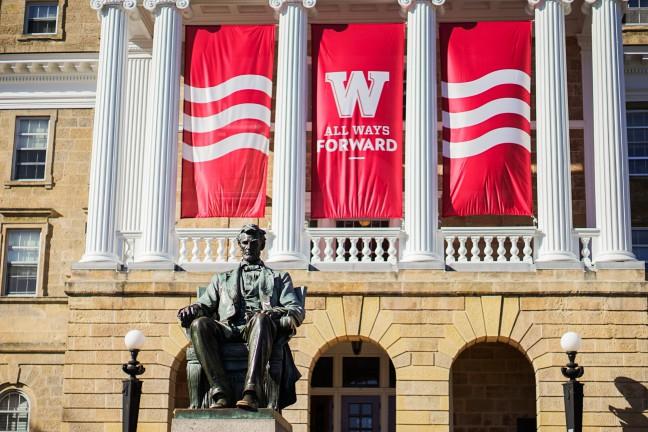A part of the recently passed Wisconsin 2021-23 budget, Gov. Tony Evers and Wisconsin legislators decided to return power to the University of Wisconsin System’s Board of Regents to end the tuition freeze. For the past eight years, the tuition freeze prevented UW schools from increasing the price of tuition for in-state students.
But, the UW Board of Regents voted not to raise tuition for the upcoming academic year July 8 despite having the power returned to them. A surprising move, to say the least.
The UW System has long opposed the tuition freeze since its implementation in 2013. UW System President Tommy Thompson and UW-Madison Chancellor Rebecca Blank both explained within the past year that lifting the tuition freeze is necessary to give universities more flexibility over their own finances. Or more likely, the flexibility to dramatically increase tuition in the near future.
UW System Board of Regents considering tuition increases in next budget biennium
The UW System continues to struggle in finding ways to cover its finances. Between the tuition freeze and budget cuts over the past several years, the UW System has a smaller budget despite increased expenses. But, the new state budget did set aside about $8 million in new funding this year.
The UW System, however, shouldered about $41 million worth of cuts over the past year during the COVID-19 pandemic.
The Wisconsin legislature continues to ignore calls to dramatically increase higher education funding, so schools like UW-Madison respond to the funding shortages by increasing tuition for out-of-state and international students.
During the 2019-20 academic year, UW-Madison’s tuition costs for out-of-state students were the third highest among Big Ten schools. Because of the tuition freeze, in-state tuition remained the fifth lowest.
Even after the tuition freeze was abolished, the UW Board of Regents decided not to raise in-state tuition. One cited reason was the lack of political support for dramatically increased costs. While Republican legislators promoted abolishing the tuition freeze, they continued to put on the political pressure to kept costs affordable for Wisconsin students.
Wisconsin lawmakers originally enacted the tuition freeze to prevent dramatic increases in costs for students. Now, lawmakers continue their commitment to protecting the cost of public education for in-state students.
UW faces backlash for scheduling first day of school on Jewish holiday
“If UW decides to jack up tuition in a tone-deaf manner, [we] will take action,” State Sen. Dale Kooyenga, R-Brookfield, said in a Greater Milwaukee Today article.
UW administrators are now being careful when considering a tuition increase so they don’t lose political support for other important policies. Thompson said in the Milwaukee Journal Sentinel a tuition increase could affect the budget.
“I have been told in no uncertain terms by the leadership of the Legislature that if I come in with a tuition increase, the budget is not going to go anywhere,” Thompson said. “So, I’ve got to balance a tuition increase proposal with getting the rest of the budget through.”
Therefore, tuition increases may not be the best political move at this moment.
Lucky for in-state UW students, they continue to enjoy tuition costs far lower than their out-of-state peers. For the whole academic year, Wisconsin in-state tuition is about $10,700, whereas out-of-state students pay around $37,700 for the exact same education.
While this disparity is extreme, its reasoning has merit. As a public university, Wisconsin taxpayers fund UW universities, and many Wisconsin families hope their child will be admitted to one of the universities they helped pay for. Increasing the cost of tuition makes higher education less attainable for many Wisconsin families.
While many would argue this problem is the purpose of Bucky’s Tuition Promise, this policy only assists families with under $60,000 of annual income. For families with only slightly higher incomes, they must pay tuition costs which are still an immense financial burden.
Chancellor Blank releases additional details for fall semester, return to campus
Many UW students criticized tuition costs over the previous year as most classes were taught online because of the COVID-19 pandemic. Due to little in-person learning and fewer available amenities, many students complained the value of their education had diminished despite the same cost of tuition. Thousands of students chose not to enroll over the past year because of concerns about the quality of their education.
So for in-state students, stable tuition rates this upcoming year are definitely a win. Wisconsin students and families continue to benefit most from this system as they pay a discounted price for their education. Out-of-state students, however, will likely continue to suffer as UW System institutions choose to increase their tuition costs over those of in-state students for political reasons.
A prevailing concern from this situation is the continued lack of funding for UW universities. The UW System will have to find funds somewhere in the near future at this rate. But until Wisconsin lawmakers can agree to allocate more state funding to higher education, changing tuition costs will be their only option.














